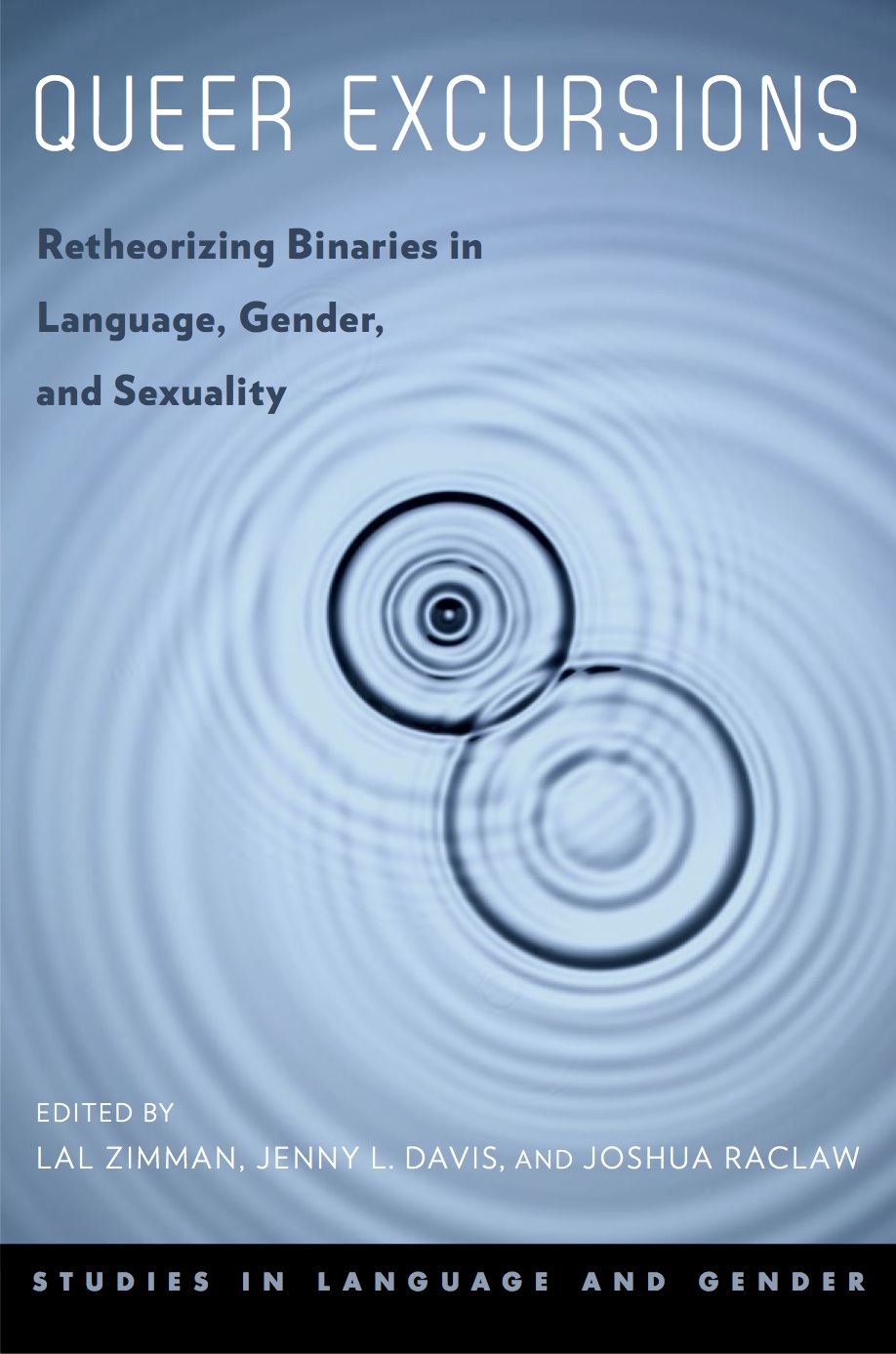 |
OverviewMy research takes a mixed-methods, interdisciplinary approach to language, identity, and power: I use both qualitative and quantitative tools to address socially-meaningful phenomena across numerous levels of language, and I incorporate insights from linguistics, anthropology, and intersectional feminist, queer, and transgender theories. What drives all of this work is a community-based orientation and dedication to whatever transgender people might do with language, particularly in cases where trans communities' marginalization, safety, well-being, and humanity are at stake. Trans linguistics may at first glance seem either narrow or separate from the advancement of linguistic theory. Yet I have found that a thorough investigation of how trans people engage with language frequently serves to complicate widely-held assumptions about how language operates in relation to the social and embodied self. How we think about trans language is, ultimately, intertwined with broader understandings of linguistic structure, change, production, perception, and agency. By the same token, shifts in the ways people engage with language as it relates to trans communities require an interrogation of broader discourses and ideologies about language itself. If you would like to learn more about the Oxford University Press Studies in Language, Gender, and Sexuality, you can visit the OUP site or find out more about submitting a proposal or manuscript here . |
Queer Excursions: Retheorizing Binaries in Language, Gender, and Sexuality, (2014, OUP, Zimman, Davis & Raclaw), received the Association for Queer Anthropology's Ruth Benedict Prize for Outstanding Edited Volume. |
Projects
The following is a (non-exhaustive) list of projects that I continue to work on in some capacity; other works and one-off projects can be found on my presentations and publications page.
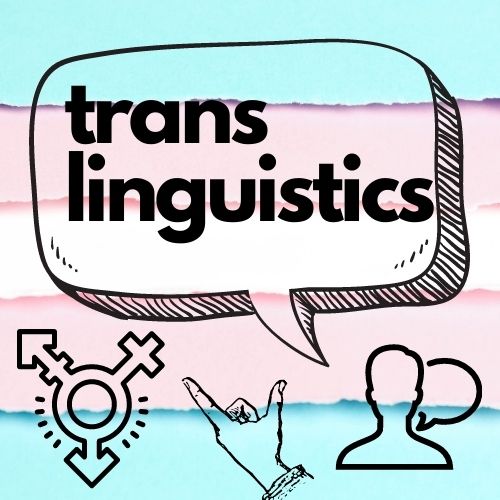 |
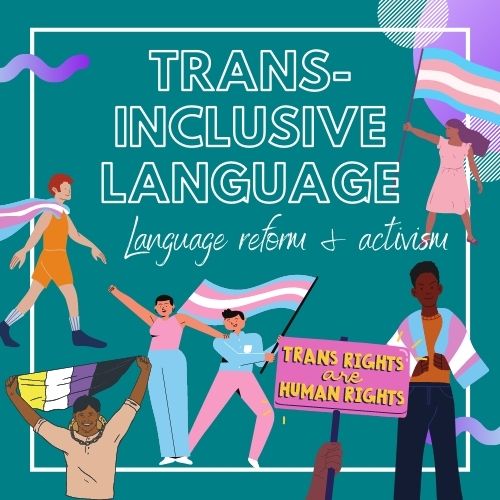 |
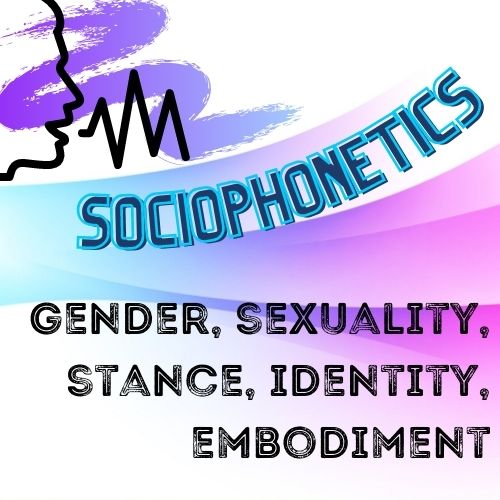 |
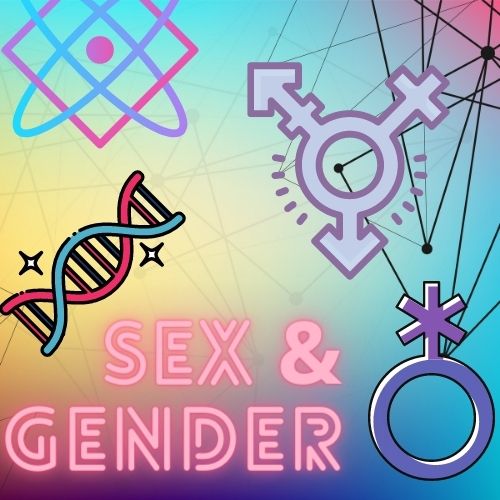 |
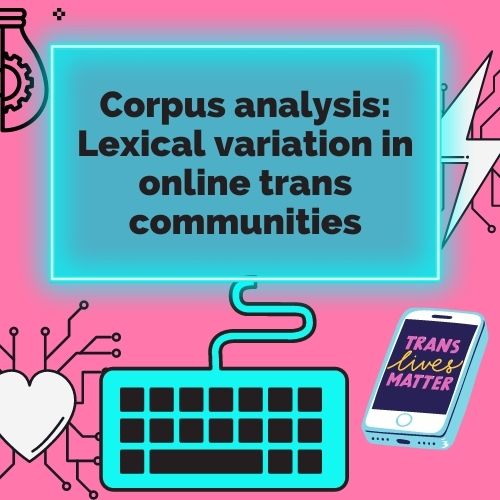 |
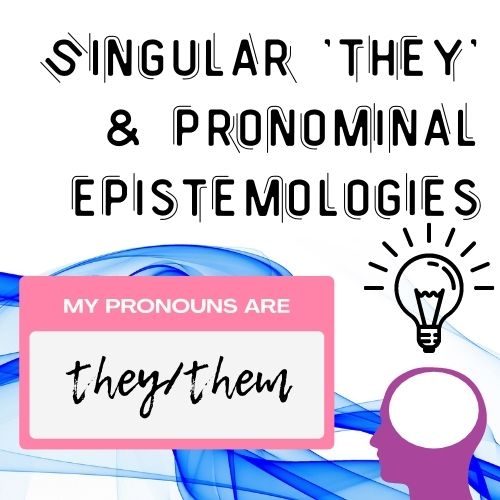 |
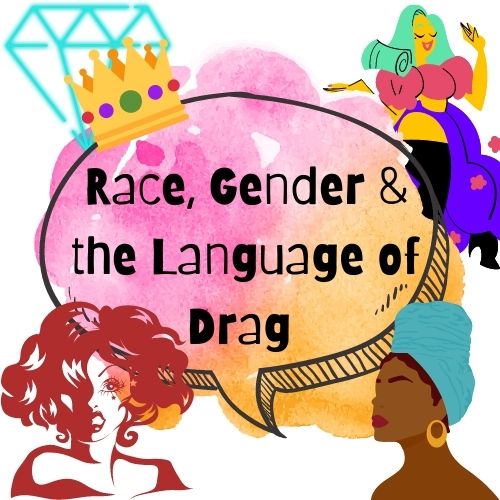 |
||
Theorizing trans linguistics

After more than 15 years of studying trans people's linguistic practices, I have distilled my approach to this work into a framework I call trans linguistics. I see trans linguistics as parallel and to some degree overlapping with queer linguistics; however, as I lay out in "Transgender language, transgender moment: Toward a trans linguistics" (2020, The Oxford Handbook of Language and Sexuality, edited by Rusty Barrett and Kira Hall) trans linguistics takes a distinctive approach. In addition to centering trans identities, practices, and epistemologies, trans linguistics involves reframing of transformation and change not as exceptional but as central to human life, investigating not (only) what exists now but what else might be possible, and which is grounded in the material conditions through which gender is produced. In "Beyond the cis gays' cis gaze: The need for a trans linguistics" (2022, Gender and Language) I discuss the need to address transphobia as an intersectional phenomenon in the profession and study of linguistics. Trans people are not only historically underrepresented in linguistics, but misrepresented, othered, and excluded by those who might be expected to support the communities' linguistic needs. Trans linguistics is not only a research framework, then, but a way of rethinking aspects of our professional and ethical responsibilities as linguists.
Currently, I am working with a group of trans scholars on a special issue for Gender and Language that aims to advance trans linguistics as a fully-articulated approach.
Trans-inclusive language, language reform & linguistic activism

In addition to pursuing my scholarly interests, I have directed energy toward promoting trans-inclusive linguistic practices within my own communities, including among linguists and on the campuses where I have taught. For instance, I am often asked to give workshops on trans-inclusive and -affirming language, in which my recommenations are based on what I have observed in trans communities. After all, the challenges cis people face - how to avoid misgendering someone, how to be inclusive of identities other than one's own, how to be more specific when talking about different aspects of sex/gender - are ones trans people must content with as well.
Two of my publications explicitly chart the challenges and strategies of trans-inclusive language. The first, ""Transgender language reform: Some challenges and strategies for promoting trans-affirming, gender-inclusive language" can be found in the inaugural issue of the Journal of Language and Discrimination. The second, "Pronouns and possibilities: Transgender language activism and reform,"" offers a shorter, more accessible discussion in Language and Social Justice: Case Studies on Communication and the Creation of Just Societies (2018, Routledge, edited by Avineri, Conley, Graham, Johnson, and Rosa). Both offer a variety of concrete ways to make one's language more trans-inclusive. This work also informed my (modest) contributions to the Linguistic Society of America's "Statement against linguistic misgendering," and the Committee on LGBTQ+ Issues in Linguistics [COZIL]'s "Guidelines for avoiding misgendering in professional communications," which were both drafted by the COZIL Pronoun Statement Sub-Committee.
Closely related to this work is the survey I and a group of students conducted of trans+ people at UCSB. You can find the results on the Trans+ at UCSB page.
Sociophonetics of gender, sexuality, and stance

A major strain of my research is sociophonetic, and in this work I have been interested in an array of topics that relate to gender, sexuality, and the voice as well as the linkage between the gendered voice and stance-taking in interaction. "Transgender voices: Insights on identity, embodiment, and the gender of the voice," (2018, Language and Linguistics Compass) is an accessible review that lays out how trans voices demand a reconsideration of conventional wisdom about the notion of "female" or "male" voices, and possibilites for what alternatives might look like.
My dissertation fieldwork in San Francisco from 2010-2012 followed a group of 15 English-speaking trans men and non-binary people who were assigned female at birth and making use of testosterone to masculinize their bodies. I have published an overview of changes in these speakers' vocal pitch and how this relates to /s/ in Gender as stylistic bricolage: Transmasculine voices and the relationship between fundamental frequency and /s/ (2017, Language in Society) as well as more in-depth discussions of /s/ in "Variability in /s/ among transgender speaker: Evence for a socially-grounded account of gender and sibilance" (2017, Linguistics), which also focuses on a bilingual speaker of English and Iberian Spanish. In this and other work, I have argued for a multidimensional model of gender that distinguishes gender assignment, presentation, role and self-identification in addition to various aspects of embodiment.
Another aspect of the voice that is of interest to me is voice quality/phonation. I first investigated the use of creaky voice in "Hegemonic masculinity and the variability of gay-sounding speech: The perceived sexuality of transgender men," which explores the perception of different sociophonetic styles, when used by speakers understood to be male, as equally "gay-sounding" in an experimental context. In that article, I report on a connection between creaky phonation and the attribution of gayness. I have since focused more directly on creak in my collaborative work with Kara Becker and Sameer ud Dowla Khan, which is forthcoming in Language Variation and Change. Our analysis explores the creak usage of young adults with a variety of (cis and trans) gender identities, which has allowed us to show that the notion of creak mapping onto femininity for speakers of American English fails to account for the diversity of gender identities – and ways of expressing them semiotically – that are currently available in many communities. This article also considers some of the affective dimensions of creak, which is a topic I have analyzed and presented on for some time but have yet to publish.
Building on this research, I am now working on more overarching statements about what it means to categorize voices as "female" or "male." and the extent to which such a conceptualization shapes the ways linguists (and non-linguists) do acoustic analysis.
The construction of biological sex and gender identity

Among the most foundational aspects of my research is a critical interrogation of the notion of "biological sex" as a social and discursive construct. This topic has relevance across the domains of my work: it is part of what shapes trans people's access to fundamental resources like medical care, it impacts the ways linguists (and others) see the voice as a natural reflection of sexual dimorphism, and it is an area of intense interest for trans activists and for those who hope to exclude and pathologize trans people. I first engaged with this idea as a graduate student when I realized that the notion that sex was socially constructed was reflected in ways I had seen for years in trans communities: ways of talking about bodies that disrupt and reconfigure the connection between body parts and gender categories.
I first published on these practices in a co-authored chapter with Kira Hall, ""Language, embodiment, and the 'third sex'" (2009, Language and Identities, ed. Llamas & Watt ), and later developed it more fully in "The discursive construction of sex: Remaking and reclaiming the gendered body in talk about genitals among trans men," (2014, Queer Excursions: Retheorizing Binaries in Language, gender, and Sexuality, ed. Zimman, Davis & Raclaw), The chapter with Kira Hall offers two vantage points from which to consider the role of embodiment: as part of the semiotic package available for the construction of gender and sexuality, but also as something that is itself construted through language use. The piece in Queer Excursions delves more deeply into the latter issue, analyzing the ways members of an online community for trans men use both canonically "female" and canonically "male" lexical items for genital body parts in reference to their own bodies, regardless of surgical status. I also co-authored an article with Elijah Edelman in a special issue of the Journal of Homosexuality on trans sexualities, in which we situated these discourses within the notion of sexual productivity as it operates within homonormative sexual economies.
In addition to my devotion to gendered embodiment, I have also explored how gender identity is conceptualized and how to understand the processes of self-identification that tend to predominate in trans discourses. "Trans self-identification and the language of neoliberal selfhood: Agency, power, and the limits of monologic discourse," (2019, International Journal of the Sociology of Language), addresses how theories of identity developed in contemporary Western trans communities are dependent on a notion of the neoliberal self that is free to determine their own (gendered) destiny. As happens in neoliberal discourses more broadly, this view elides the unequal access to self-identification that is granted to trans subjects on the basis of race, disability, class, and citizenship, among others. My work on trans people's coming out narratives – "'The other kind of coming out': Transgender people and the coming out narrative genre" (2009, Gender and Language) – falls into this category as well.
Corpus analysis of lexical variation and change in online trans communities

Motivated by an interest in the kinds of lexical variation described in the last section, I worked with my dear friend, Will Hayworth (of Google), to create the TransLiveCorpus in. The TransLiveCorpus (2020) consists of public entries (and their comments) posted to four online communities for trans people on the social media platform LiveJournal. These communities were popular spaces for trans people to interact online throughout the 2000s, and the corpus thus provides insight into linguistic practices that predate the changes of the 2010s and 2020s that have received more public and scholarly attention.
Hayworth and I have published two proceedings papers using the TransLiveCorpus. In "Lexical change as sociopolitical change in trans and cis identity labels" (2020, University of Pennsylvania Working Papers), we describe our method for creating a corpus of only semi-structured online data as well as demonstrating how the corpus might be used. Specifically, we examine changes in the terms used to refer to both trans and cisgender people in one community, and focus especially on the shift away from "transgendered" and towards "transgender" or "trans" instead, and the emergence of "cisgender(ed). In "How we got here: Short-scale change in identity labels for trans, cis, and non-binary people in the 2000s" (2020, Proceedings of the LSA), we expand our analysis to include three other communities and consider a larger number of lexical items including alternative ways for referring to cisgender people and terms for non-binary individuals.
A great deal remains to be done with the TransLiveCorpus, and I welcome requests from other scholars who wish to use it. Currently, my advisee, Cedar Brown, is writing their thesis based on the corpus, which we will present together at the 2022 Annual Meeting of the LSA.
Singular "they"

A newer aspect of my work, which considers the expanding scope of singular "they" I have been engaged with two data sources here: informally collected examples of singular they I have gathered over the past 15 years, which shows the use of "they" in reference to antecedents whose gender is binary, known to the speaker, and even relevant to the discourse (e.g., "This mother may not have accepted that their child is queer"). The other source is a advice podcast that was hosted by Danny Lavery and produced by Slate.com from 2016 to 2021, Dear Prudence. On the show, singular "they" served among several resources used by the show's hosts to refer to letter-writers who had not reported their gender. While Dear Prudence saw a significant decline in the degree to which hosts were willing to assume a letter-writer's gender, singular "they" is notably also common in cases where the gender binary is still constructed and assumed.
The process of analyzing these data raises questions about what it means for a speaker's gender to be "known" or "unknown" by interlocutors (for example, is a person's gender "known" if they are married to a man? Pregnant? Expected to do a lot of emotional labor in a relationship?). Struggling to address these questions led me to think more about what I call pronominal epistemologies, or ways of thinking and knowing about pronouns and their connection to gender. I spoke about this work in my key note at the 2020 meeting of the International Gender and Language Association, "I know that she's a they': Trans pronominal epistemologies in thinking, knowing, and talking about gender identity." A written version is in the works.
Race and gender in drag-related media

My latest work, which remains in progress, addresses questions related to race and gender in mass-media depictions of drag performers, particularly in reality television. I am in the process of writing two chapters for edited volumes that address anti-Blackness and linguistic appropriation in the RuPaul's Drag Race franchise and fandom and another that focuses on the tensions that manifest between trans-inclusive language and addressing racism in relation to the show.

